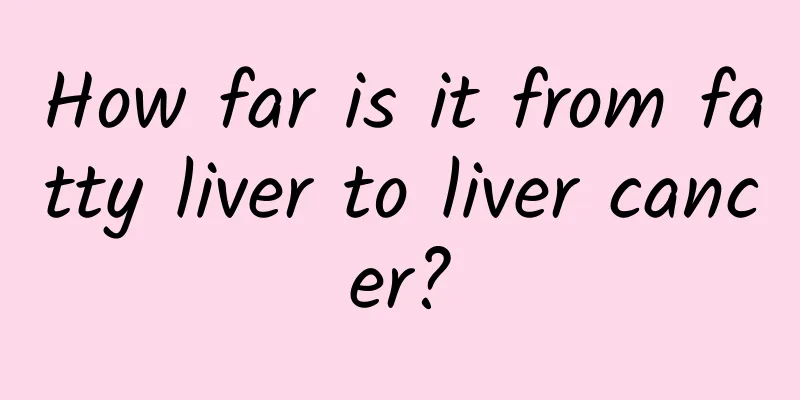Rumor debunked: Eating alkaline foods can prevent cancer!

|
In daily life, the saying about the acidity and alkalinity of food and health has always attracted much attention. In recent years, the saying that "eating alkaline food can prevent cancer" has been widely spread on the Internet and in daily life, attracting many people who pursue a healthy life. This view holds that by consuming alkaline foods, the body's acid-base balance can be changed, thereby creating an environment that is not conducive to the growth of cancer cells. However, is there any scientific basis for this statement? Can eating alkaline foods really prevent cancer? This article will start from a scientific perspective and deeply analyze this widely circulated health misunderstanding to help the public correctly understand the relationship between the acidity and alkalinity of food and cancer. 1. Basic Concepts of Food Acidity and Alkalinity The acidity and alkalinity of food refers to the acidity and alkalinity of the final product produced after the food is metabolized in the human body, rather than the acidity and alkalinity of the food itself. According to this definition, food can be divided into acidic food and alkaline food: Acidic foods: Foods that produce acid after metabolism in the body, such as meat, fish, eggs, dairy products and grains. Alkaline foods: Foods that produce alkaline substances after metabolism in the body, such as vegetables, fruits, nuts and beans. It should be noted that the acidity and alkalinity of food have nothing to do with taste. For example, although lemon tastes sour, it will produce alkaline substances after metabolism in the body, so it is an alkaline food. 2. The body's acid-base balance mechanism The human body has a powerful acid-base balance regulation mechanism, and the pH value of the blood is usually maintained between 7.35-7.45. This slightly alkaline environment is essential for maintaining life activities. The human body regulates acid-base balance in the following ways: Respiratory system: Maintains the acid-base balance of the blood by regulating the amount of carbon dioxide discharged. When the blood is acidic, breathing speeds up and more carbon dioxide is discharged; when the blood is alkaline, breathing slows down and more carbon dioxide is retained. Kidneys: Maintain acid-base balance by regulating the excretion of hydrogen ions and bicarbonate ions. Buffer system: Buffer pairs in the blood (such as the bicarbonate buffer system) can neutralize small amounts of acid or base and maintain the stability of blood pH. These mechanisms ensure the acid-base balance of the human body's internal environment and do not change significantly due to the acidity or alkalinity of the diet. 3. Mechanism of Cancer Cancer is a complex disease that involves multiple factors, including genetic mutations, environmental factors, lifestyle, and immune system function. The growth and spread of cancer cells is a multi-step process that includes: Gene mutations: The formation of cancer cells often begins with gene mutations that can cause cells to lose normal control of growth and division. Inflammatory response: Chronic inflammation can promote the growth and spread of cancer cells. Immune escape: Cancer cells can evade surveillance and attack by the immune system through a variety of mechanisms. Metabolic abnormalities: Cancer cells have unique metabolic characteristics, such as a high rate of glycolysis, which produces large amounts of lactic acid even in the presence of sufficient oxygen, a phenomenon known as the "Warburg effect." Therefore, the occurrence of cancer is a complex biological process involving the combined effects of multiple factors. 4. The relationship between food acidity and alkalinity and cancer In recent years, many scientific studies have explored the relationship between food acidity and alkalinity and cancer. However, current scientific evidence does not support the claim that "eating alkaline foods can prevent cancer." 1. Lack of causal relationship Although some epidemiological studies have found an association between the intake of certain alkaline foods (such as vegetables and fruits) and a lower risk of cancer, most of these studies are observational studies and cannot prove cause and effect. In other words, these studies can only show that there is an association between the intake of alkaline foods and cancer risk, but cannot prove that alkaline foods are the direct cause of the lower risk of cancer. Furthermore, the results of these studies have been inconsistent. Some studies have found no significant association between alkaline food intake and cancer risk, and even the intake of certain acidic foods (such as fish and dairy products) has been associated with a lower cancer risk. 2. Regulation mechanism of human acid-base balance The body's acid-base balance is mainly regulated by the respiratory system and kidneys, and will not change significantly due to the acidity or alkalinity of the diet. Even if a large amount of alkaline food is consumed, the body will maintain the stability of the blood pH by regulating the discharge of carbon dioxide and the acid-base excretion of the kidneys. Therefore, the claim that the body's acid-base balance can be changed through diet lacks scientific basis. 3. Complexity of Cancer The occurrence of cancer is a complex process involving the combined effects of multiple factors. Even if certain foods have a certain preventive effect on cancer, it is difficult to completely prevent the occurrence of cancer through a single dietary factor. For example, smoking, drinking, obesity, lack of exercise and long-term exposure to carcinogens are all important risk factors for cancer. Simply relying on the intake of alkaline foods cannot fully address these risk factors. 5. Why can’t alkaline foods directly prevent cancer? Although alkaline foods may theoretically have some positive effects on health, their cancer prevention effects are not significant. Here are a few key reasons: 1. Stability of the body’s acid-base balance The body's acid-base balance is very stable and will not change significantly due to the acidity or alkalinity of the diet. Even if a large amount of alkaline food is consumed, the body will maintain the stability of the blood pH through regulatory mechanisms. Therefore, the claim that the body's acid-base balance can be changed through diet lacks scientific basis. 2. Lack of high-quality evidence Currently, most of the studies supporting the idea that eating alkaline foods can prevent cancer are observational studies, lacking the support of randomized controlled trials (RCTs). Randomized controlled trials are the gold standard for verifying causal relationships, but there are currently no large-scale, long-term randomized controlled trials to prove that alkaline foods can directly prevent cancer. 3. Impact of lifestyle factors The occurrence of cancer is a complex process involving multiple factors, including genes, lifestyle and environmental factors. Even if you consume alkaline foods, if you do not pay attention to comprehensive lifestyle improvements such as quitting smoking, limiting alcohol, eating a healthy diet and exercising moderately, the risk of cancer is still high. 6. The real way to prevent cancer: comprehensive lifestyle changes Although alkaline foods may have certain positive effects on health, consuming alkaline foods alone cannot effectively prevent cancer. Cancer prevention requires comprehensive lifestyle changes, including a proper diet, moderate exercise, smoking cessation, alcohol restriction, and mental health. 1. Healthy diet Increase the intake of vegetables and fruits: Vegetables and fruits are rich in vitamins, minerals and dietary fiber, and have many health benefits. It is recommended to consume more than 500 grams of vegetables and 200-350 grams of fruits every day. Reduce your intake of processed meats: Try to reduce your intake of processed meats, which have been linked to an increased risk of certain cancers. Increase your intake of whole grains and legumes: Whole grains and legumes are rich in dietary fiber and nutrients, which help maintain intestinal health and reduce the risk of cancer. 2. Exercise moderately Moderate exercise is an important means of preventing cancer. It is recommended to do at least 150 minutes of moderate-intensity aerobic exercise per week, such as brisk walking, jogging or swimming. In addition, increasing muscle strength training can increase the basal metabolic rate and improve overall health. 3. Quit smoking and limit alcohol consumption Smoking and excessive drinking are important risk factors for cancer. Quitting smoking and limiting alcohol consumption can significantly reduce the risk of many cancers and protect your health. 4. Mental Health Long-term mental stress, anxiety, depression and other psychological problems can increase the risk of cancer. Managing stress and maintaining mental health through meditation, yoga, psychological counseling, etc. can help prevent cancer. VII. Conclusion Alkaline foods such as vegetables and fruits have many health benefits, but scientific evidence shows that their anti-cancer effect is not significant. The occurrence of cancer is a complex process involving the combined effects of multiple factors, and it cannot be completely prevented by simply relying on a certain food or diet. [Fund Project] Shanghai Rehabilitation Medicine Association "Health Management Research Fund" Science Popularization Project (No.: 2024JGKP03), Shanghai Pudong New Area People's Hospital Science Popularization Talent Capacity Improvement Project (No.: PRYKP202501) [Author] Liu Yanping Chen Ye Shanghai Pudong New Area People's Hospital |
<<: The road to pulmonary rehabilitation for COPD patients: Rediscovering free breathing
>>: Is cervical erosion a disease?
Recommend
What causes vaginal discharge to turn yellow?
Leucorrhea is a normal physiological reaction of ...
What foods can promote ovarian development?
The quality of ovarian development is directly re...
How long is the delay in menstruation considered normal after taking birth control pills?
Adult women all know that birth control pills are...
Why does menstruation come 10 days early?
The normal menstrual cycle of women is 28 days. I...
What should women do if they have cold in their body?
Women's bad living habits always lead to some...
Introduction to the impact of pregnant women's emotional excitement on the fetus
In fact, when you find out that you are pregnant,...
Benefits of Back Meridian Exercises for Women
Many people know that northern massage has many b...
Is it normal for my period to come eight days early?
Most women have regular menstruation, but for man...
Can I drink dandelion tea while breastfeeding?
Women may experience a series of discomfort sympt...
I don't have breast pain before my period. I'm pregnant.
Does breast pain before menstruation mean I’m pre...
What to pay attention to after ovarian cyst surgery
What should you eat after ovarian cyst surgery? T...
Pressure therapy is crucial for “old leg ulcers”. What should you pay attention to when applying bandages and wearing elastic stockings?
Author: Zhang Xin, Head Nurse, Beijing Tongren Ho...
How many days after a miscarriage can I go out?
If you have just had an abortion, do not go out f...
What can cause a pregnancy test to be inaccurate?
A pregnancy test stick is a device that determine...
Is it normal to have heavy menstrual flow after childbirth?
Generally speaking, women will pay special attent...



![[TCM Nursing Column] Unblocking "lung obstruction" and breathing freely - moxibustion with medicinal cakes for the treatment of chronic obstructive pulmonary disease](/upload/images/67f14bca220a4.webp)





